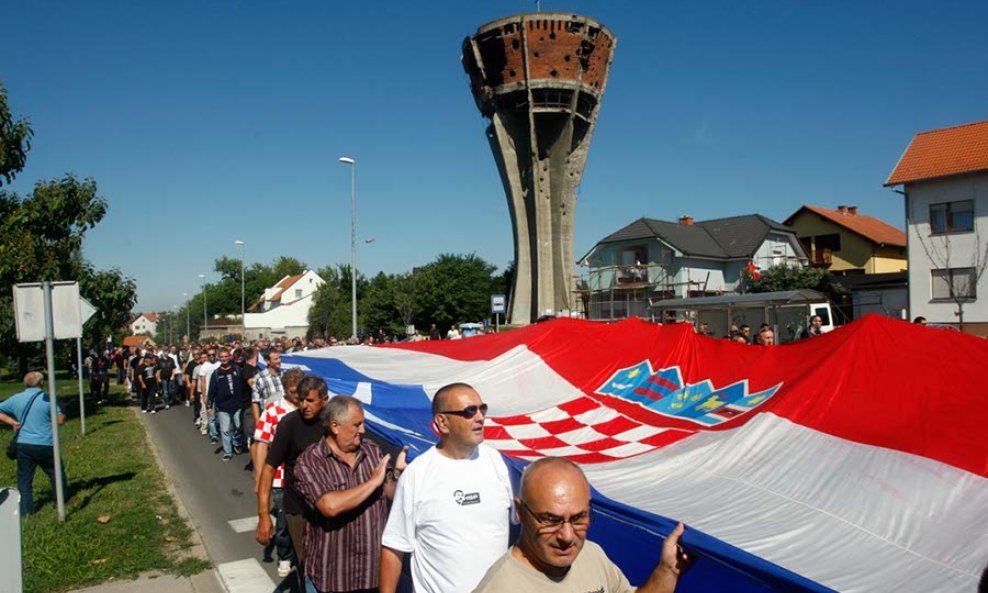Several hundred people on Thursday held a peace walk through Vukovar in protest of Cyrillic signs at public institutions in that eastern Croatian town, and during today's march they visited a few sites of suffering of victims during the occupation by Serb rebels supported by the then Yugoslav People's Army (JNA).
A leader of this initiative against the dual alphabet signs both in Cyrillic and Latin, Tomislav Josic, expressed hope that today's march would be peaceful, just as it had been yesterday.
He welcomed the fact that anti-riot police forces had been withdrawn from the town.
"We will not destroy this town, we defended this town while they (occupying forces and rebels) were destroying it," Josic said.
He reassured the gathered protesters that the town's statute would be amended, which would pave the way for the removal of Cyrillic sings.
"The town council will amend the statute of the town of Vukovar and the area would be declared a place of reverence," Josic added.
According to the 2011 census, local Serbs account for slightly over one-third of the population in Vukovar, which enables them to exercise certain rights such as signs written in the alphabet this minority uses. The existing statute of Vukovar, which envisages the introduction of dual-script signs in both Latin in Cyrillic on public institutions in the event that the Serb majority accounts for more than a third of the town's population, was adopted by the coalition of the Croatian Democratic Union (HDZ), the Croatian Party of Rights (HSP) and the Independent Democratic Serb Party (SDSS) in 2009 when they made up the majority in the town council.
Representatives of Homeland Defence War veterans' organisations are expected to convene in Vukovar on Thursday afternoon to consider further steps.
The protests began in Vukovar on Monday morning, after dual-alphabet signs appeared on a few public institutions. On the first day, protesters smashed those signs and later they were re-erected.
Bilingual signs have not met resistance in a dozen other areas in Croatia populated by ethnic Serbs.


































